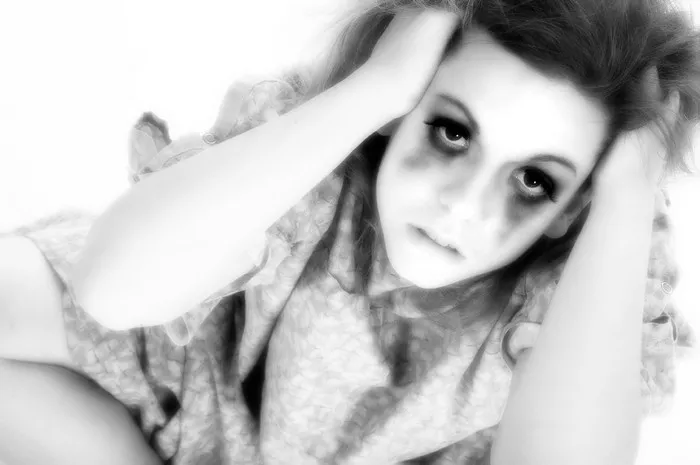Dissociative disorders are a group of mental health conditions characterized by disruptions or disturbances in a person’s memory, identity, consciousness, or perception of reality. These disorders can have a profound impact on an individual’s sense of self and daily functioning. In this comprehensive article, we explore the various types of dissociative disorders, their symptoms, potential causes, diagnosis, and treatment options.
What are Dissociative Disorders?
Dissociative disorders involve a disconnection between thoughts, memories, identity, or consciousness, often as a coping mechanism in response to trauma or stress. These disorders are believed to arise from a combination of genetic, neurobiological, psychological, and environmental factors. While dissociative experiences are relatively common and may occur in response to stress or trauma, dissociative disorders involve persistent and distressing symptoms that significantly impact daily life.
Prevalence
Dissociative disorders are relatively rare, with an estimated prevalence of less than 2% in the general population. However, they are often underdiagnosed and misunderstood, leading to challenges in accurate recognition and treatment.
Types of Dissociative Disorders
There are several types of dissociative disorders recognized by the Diagnostic and Statistical Manual of Mental Disorders (DSM-5), each with its own unique features and characteristics:
1. Dissociative Amnesia
Dissociative amnesia involves the inability to recall important personal information, typically related to traumatic or stressful events. The memory loss is not due to ordinary forgetfulness and is often accompanied by significant distress or impairment in daily functioning.
2. Dissociative Identity Disorder (DID)
Formerly known as multiple personality disorder, DID involves the presence of two or more distinct identity states or personality states, each with its own pattern of perceiving and interacting with the world. Individuals with DID may experience gaps in memory for everyday events, personal information, or traumatic experiences.
3. Depersonalization-Derealization Disorder
Depersonalization-derealization disorder is characterized by persistent or recurrent experiences of feeling detached from one’s body (depersonalization) or surroundings (derealization). Individuals may describe feeling as though they are observing themselves from outside their body or that the world around them is unreal or distorted.
4. Other Specified Dissociative Disorder (OSDD)
OSDD encompasses dissociative symptoms that do not meet the full criteria for other dissociative disorders but still cause significant distress or impairment. This category includes subtypes such as identity disturbance due to prolonged and intense coercive persuasion and identity disruption associated with stressful life events.
5. Unspecified Dissociative Disorder
Unspecified dissociative disorder is used to describe presentations with dissociative symptoms that cause distress or impairment but do not fit the criteria for any specific dissociative disorder. This category may be used when symptoms are not well-defined or when additional information is needed for a more precise diagnosis.
Symptoms of Dissociative Disorders
While the specific symptoms of each dissociative disorder vary, some common features may include:
Memory Loss: Difficulty recalling important personal information, events, or experiences.
Identity Disturbance: Feelings of being disconnected from one’s sense of self or having multiple distinct identities or personality states.
Depersonalization: Sensations of being detached from one’s body, emotions, or sense of identity.
Derealization: Perception of the external world as strange, unreal, or distorted.
Amnesia: Gaps or periods of time for which the individual cannot recall significant events or experiences.
Emotional Numbing: Difficulty experiencing or expressing emotions, feeling detached or numb.
Loss of Time: Episodes of “losing time” or being unable to account for periods of time.
Causes of Dissociative Disorders
The development of dissociative disorders is thought to be influenced by a combination of genetic, neurobiological, psychological, and environmental factors. Some potential contributors include:
Trauma: Experiencing or witnessing traumatic events, such as physical or sexual abuse, neglect, or severe emotional distress, is a significant risk factor for dissociative disorders.
Genetics: There may be a genetic predisposition to dissociative disorders, although specific genes associated with these disorders have not been identified.
Neurobiology: Differences in brain structure and function, particularly in regions involved in memory, emotion regulation, and self-awareness, may contribute to the development of dissociative symptoms.
Psychological Factors: Personality traits such as suggestibility, fantasy proneness, and a tendency to dissociate under stress may increase the likelihood of developing dissociative disorders.
Environmental Factors: Family dynamics, cultural influences, and social support networks can also play a role in the onset and course of dissociative symptoms.
Diagnosis of Dissociative Disorders
Diagnosing dissociative disorders can be challenging due to the complexity of symptoms and the overlap with other mental health conditions. A comprehensive evaluation by a qualified mental health professional is essential for an accurate diagnosis. This evaluation may include:
Clinical Interview: A thorough assessment of the individual’s medical history, symptoms, and experiences, including any history of trauma or stressful life events.
Diagnostic Criteria: Determining whether the individual meets the criteria outlined in the DSM-5 for specific dissociative disorders, such as dissociative amnesia, DID, or depersonalization-derealization disorder.
Psychological Testing: Psychological assessments and standardized measures may be used to assess the severity of dissociative symptoms and rule out other possible explanations for the individual’s experiences.
Treatment Options for Dissociative Disorders
Effective treatment for dissociative disorders typically involves a combination of psychotherapy, medication, and supportive interventions. The goals of treatment may include:
Stabilization: Establishing a safe and supportive therapeutic environment to help the individual manage symptoms and build coping skills.
Trauma Processing: Addressing underlying trauma or unresolved emotional issues through evidence-based therapies such as trauma-focused cognitive-behavioral therapy (TF-CBT), eye movement desensitization and reprocessing (EMDR), or dialectical behavior therapy (DBT).
Integration: Promoting integration and cohesiveness among identity states in individuals with DID, often through techniques such as internal communication, grounding exercises, and identity work.
Medication: In some cases, medications such as antidepressants, antianxiety agents, or antipsychotic medications may be prescribed to help manage symptoms such as depression, anxiety, or psychosis.
Conclusion: Understanding and Addressing Dissociative Disorders
Dissociative disorders are complex mental health conditions characterized by disruptions in consciousness, memory, identity, or perception. While these disorders can have a profound impact on an individual’s life, effective treatment and support are available to help individuals manage symptoms, heal from trauma, and regain a sense of stability and well-being. By raising awareness, promoting early intervention, and providing compassionate care, we can work towards reducing the stigma surrounding dissociative disorders and improving outcomes for those affected by these conditions.
[inline_related_posts title=”You Might Be Interested In” title_align=”left” style=”list” number=”6″ align=”none” ids=”7677,7625,7683″ by=”categories” orderby=”rand” order=”DESC” hide_thumb=”no” thumb_right=”no” views=”no” date=”yes” grid_columns=”2″ post_type=”” tax=””]
































